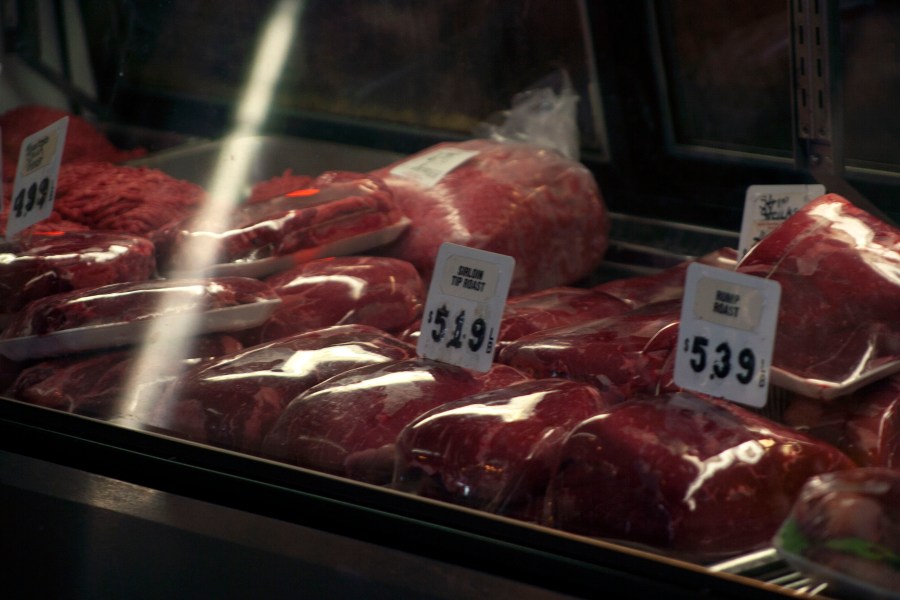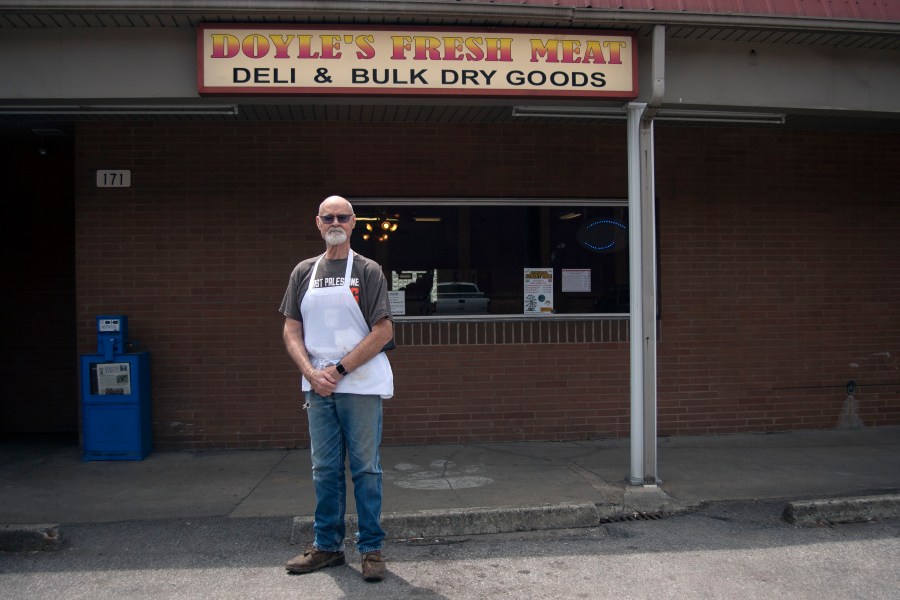East Palestine businesses still rebounding after derailment
- Entrepreneurs are still struggling from a toxic chemical train derailment
- Customers cited concerns about possible chemical contamination
- The Ohio Farm Bureau says water, soil and plant testing will continue

A deli worker slices meat at Doyle’s Fresh Meat & Deli in East Palestine, Ohio. (Katie Smith/NewsNation)
(NewsNation) — Businesses in East Palestine, Ohio, are continuing to fight the stigma and concern that arose from a Feb. 3 Norfolk Southern train derailment and the subsequent release of toxic chemicals.
At one point, the local business Doyle’s Fresh Meat & Deli was down between $8,000 to $10,000 per week, partially rooted in customers’ fears about the meat potentially being contaminated, owner Duane Doyle said.
“I think they were concerned with where the meat came from,” Doyle said. “Even though we’re in East Palestine, we buy nothing from the immediate community. It’s not that we’re going out of our way not to buy it — it’s just there is no farmer in this area that could even begin to serve us as much product as we go through.”

(Katie Smith/NewsNation)
One business owner, Nate Velez, who operates Velez Engines in East Palestine, told NewsNation in March that even he received questions about vinyl chloride in his products.
“If anyone sees East Palestine, they’re like ‘Oh, crap,’” Velez told NewsNation at the time.
For that reason, the safety and security of crop and livestock operations near the derailment site were top of mind for the Ohio Farm Bureau, Organization Director Nick Kennedy said.
“They were getting calls and messages on social media and things like that saying, ‘Is your stuff safe?’” Kennedy said. “And so we kind of reached out and said can we expand our reach a little bit on some of the testing here just to make sure everything’s good?”
So far, tests have reassured those farmers their products will be OK, but that was in the winter. Kennedy said there are plans for future testing of soil, water and plant tissue.

(Katie Smith/NewsNation)
“Once the corn and bean crop has been planted and comes up (we’ll) continue that testing… because a lot of those crops are going to be crops that are fed to livestock,” Kennedy said.
As for Doyle, business seems to be picking back up. Still, he announced earlier this week he’s sold the shop to another family. Despite local speculation, the sale wasn’t the direct result of the derailment, he said. After more than 50 years in the business and a recent health scare, Doyle thought it was time slow down.
“I’m happier for the community because they’re still going to have a store to shop,” Doyle said. “Sure there’s a grocery store, but it’s always nice having a choice.”
The struggle other business owners will continue to face isn’t lost on Doyle, however.
East Palestine residents have rallied together to support their local shops, but many of those businesses counted on clientele from about 50 miles over the border in Pittsburgh.
For many out-of-state customers, the 1 ½-hour trip included multiple stops for cheaper gas and specialty shops, Doyle said.
“People aren’t coming from Pennsylvania like they used to,” Doyle said. “It was right where about where the derailment happened.”










